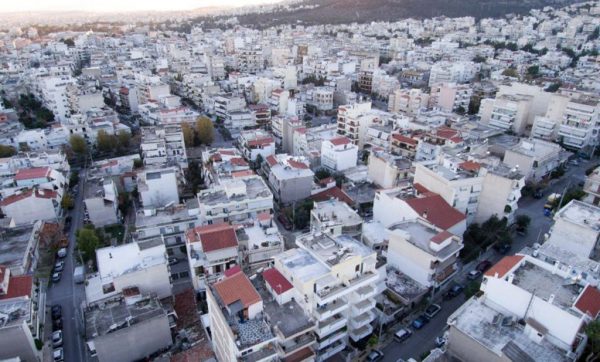
Although the annual inflation rate in Greece continued ease last month, May 2023, certain cost-of-living indexes remained high, especially food prices, which recorded a higher rate than other sectors.
Overall, the inflation rate in Greece eased to 4.1 percent in May, according to Eurostat, lower than most other countries in the EU and Eurozone. The flattened inflation rate was mostly due to collapsing energy prices.
In fact, Greece sported the second most pronounced reduction in energy prices amongst the 12 Eurozone members for which figures are available. Specifically, energy prices decreased by 21.1 percent on an annual basis. Belgium led the pack with a 32.5-percent reduction.
According to the weekly economic bulletin by Greek systemic lender Alpha Bank, one of the reasons that Greece is experiencing milder inflation pressures at present is that after February 2023 the harmonized consumer price index, which includes energy products, fell by 5.8 percent, 14.7 percent and 18 percent, respectively, between February 2023 and April 2023. The latter development is partially attributed to base effects.
Conversely, a dramatic increase in energy prices in Greece began in early 2022, compared to the Eurozone, 56 percent compared to 40 percent on an annual basis, on average, something witnessed between March 2022 and September 2022.
At the same time, however, food prices continued to record higher cost hikes, compared to the overall inflation rate.
Greece’s statistics authority (EL.STAT) is expected to announce its own inflation figures for the previous month, May 2023, on June 9, revealing whether food prices have finally dropped to single digit “territory” or whether they will again have posted double-digit inflation for a 14th consecutive month.
Latest News

Capital Link Forum Highlights Greece’s Economic Resurgence; Honors BoG Gov Stournaras
Capital Link Hellenic Leadership Award recipient, Bank of Greece Gov. Yannis Stournaras, an ex-FinMin, was lauded for his pivotal role during Greece’s economic recovery

Tourist Spending in Greece Up by 14%, Visa Card Analysis Shows
Greece’s capital Athens emerged as the most popular destination, recording a 17% increase in transactions with Visa cards, surpassing even the cosmopolitan island of Mykonos.

Inflation in Greece Unchanged at 2.4% in Nov. 2024
The general consumer price index (CPI) posted a 0.4% decrease in November compared to the previous month

2024 Christmas Holidays: Extended Shop Hours Schedule
The 2024 Christmas Holidays extended shop hours schedule commences on Thursday, December 12 and runs until the end of the year.

ELSTAT: Seasonally Adjusted Unemployment Down in October
The number of employed individuals reached 4,284,694, an increase of 67,723 compared to October 2023 (+1.6%) and 22,002 compared to September 2024 (+0.5%).

Greek PM’s Chief Economic Adviser Resigns
In the post on his Facebook page, Patelis did not disclose the reasons that led him to step down.

“Masdar Invests in the people of Greece and in the vision of TERNA ENERGY”
Four messages from the CEO of Masdar, the Arab renewable energy giant, after its acquisition of 70% of TERNA ENERGY

Lloyd’s List Greek Shipping Awards 2024: Honors for leading companies and personalities in the Greek shipping sector
20 awards presented at the 21st annual Lloyd's List Greek Shipping Awards

Syria’s Bashar al-Assad, His family Granted Asylum by Russia
Reuters also reported that a deal has been struck to ensure the safety of Russian military bases in the war-ravaged country

Greece to Introduce Artificial Intelligence into Its Education System
Currently, Greece is taking its first steps to bring AI into classrooms through the AI4edu program, which is being co-funded by the European Union















![Χειμερινή εξοχική κατοικία: Οι Ελληνες γυρνούν την πλάτη παρά την πτώση των τιμών [γραφήματα]](https://www.ot.gr/wp-content/uploads/2024/12/Capture-19-90x90.jpg)










![Εμπορικά ακίνητα: Ασταμάτητη η άνοδος των ενοικίων – Πόσο αυξήθηκαν σε Αθήνα, Θεσ/νίκη και υπόλοιπη Ελλάδα [πίνακες]](https://www.ot.gr/wp-content/uploads/2021/05/grafeip-600x399.jpg)














 Αριθμός Πιστοποίησης Μ.Η.Τ.232433
Αριθμός Πιστοποίησης Μ.Η.Τ.232433